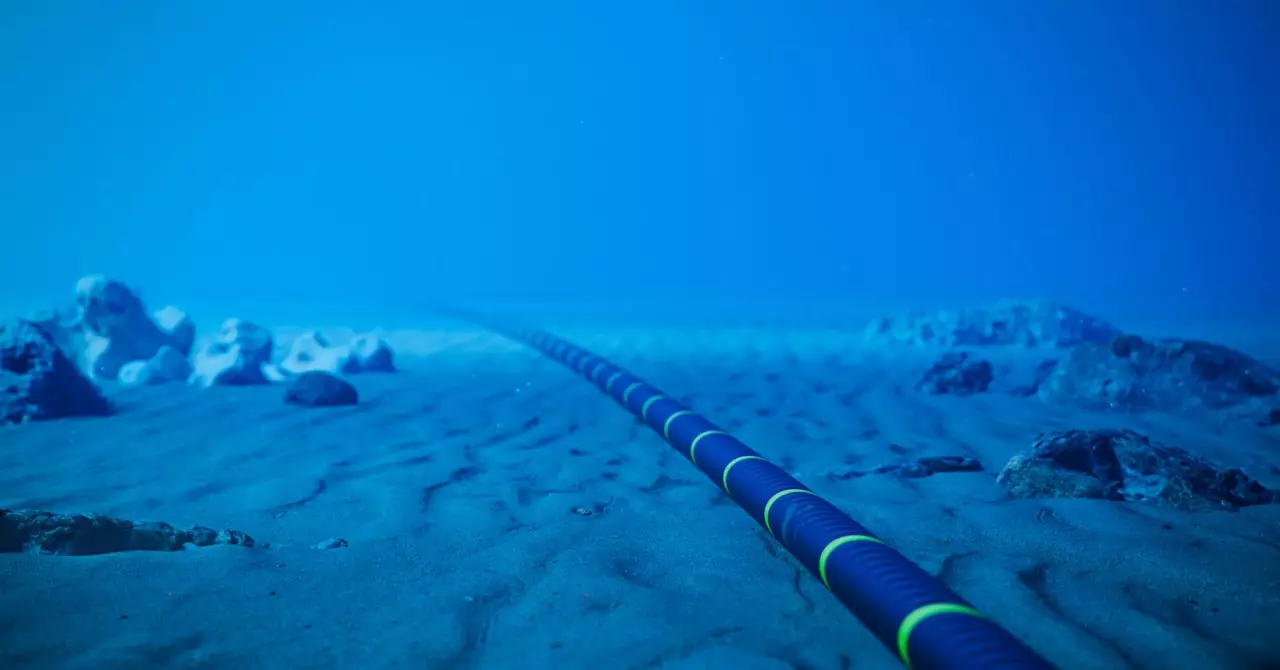Meta has embarked on an ambitious initiative known as the Waterworth Project, aimed at establishing a colossal undersea cable network spanning 50,000 kilometers across five continents. The significance of this project cannot be overstated, as it not only seeks to enhance internet connectivity but also positions Meta to exert greater control over the infrastructure that supports its myriad services, particularly those powered by artificial intelligence (AI). This initiative is a testament to the overwhelming reliance on submarine cables, which currently facilitate over 95 percent of intercontinental internet traffic.
According to Meta, Project Waterworth represents a multibillion-dollar investment that will revolutionize the global digital landscape. The company’s assertion that the undertaking will open three new oceanic corridors highlights its ambitions to meet the ever-growing demand for high-speed connectivity essential for AI development and innovation. With the interoceanic cable expected to surpass the Earth’s circumference, Waterworth is poised to become the longest undersea cable in existence.
While first shared by entrepreneur Sunil Tagare last fall, the project has since gained widespread attention, especially as economic cooperation discussions between leaders like India’s Prime Minister Narendra Modi and former U.S. President Donald Trump have integrated this initiative. Their joint statement underscores a commitment to enhancing connectivity in the regions surrounding the Indian Ocean, showcasing the geopolitical implications intertwined with technological advancement.
The project’s strategic landing points in key markets such as India, the United States, Brazil, and South Africa are particularly noteworthy. India, poised as a potential beneficiary of this investment, is increasingly recognized for its burgeoning digital infrastructure. Meta’s commitment to accelerating this progress is indicative of a larger trend where technology companies are investing heavily in developing the digital economy of emerging markets. The Waterworth Project, by facilitating access to high-speed internet, could be instrumental in transforming India’s digital landscape and fostering AI innovation within the country.
From a global perspective, the construction of such extensive infrastructure will resonate across industries and economies. It has the potential to create new business opportunities, enhance communication, and facilitate data exchange at unprecedented speeds.
Technical Innovations and Risk Mitigation
Meta plans to leverage advanced cable architecture featuring 24 fiber pairs, specifically designed to navigate the challenges of deep-water routing and reach depths of up to 7,000 meters. Such technical innovations are crucial for ensuring robust performance and reliability, but they also introduce new complexities. The company has outlined improved burial techniques aimed at minimizing damage risks from external factors like ship anchors. This proactive approach reflects a growing industry emphasis on not only expanding capacity but also safeguarding critical infrastructure.
The Waterworth Project also positions Meta to directly compete with major players such as Google, which operates around 33 undersea cable routes—many of which are exclusively owned. Other tech giants like Amazon and Microsoft have similarly expressed interest in this sector, albeit through partnerships or capacity acquisitions rather than outright ownership. This competitive landscape raises questions about the future of undersea infrastructure and how it will be managed and utilized as demand continues to skyrocket.
The Broader Implications for Digital Infrastructure
Beyond the immediate technological advancements, the Waterworth Project symbolizes the deeper intersection of technology, national interests, and globalization. As more nations recognize the importance of robust digital infrastructure, initiatives like these could set the tone for future international collaborations, reshaping the dynamics of technology ownership and data governance. Meta’s commitment to this project suggests an understanding that connectivity is not merely a service; it is a foundational element of modern economies.
As Meta presses forward with the Waterworth Project, the stakes are high. This initiative encapsulates not just a technological breakthrough but also a significant shift in how digital connectivity is approached on a global scale. The project’s success could pave the way for greater advancements and collaborations across continents, redefining the future of internet access, data sharing, and AI innovation. The world will be watching closely as this ambitious undertaking unfolds, anticipating the myriad changes it will bring to the digital landscape.

